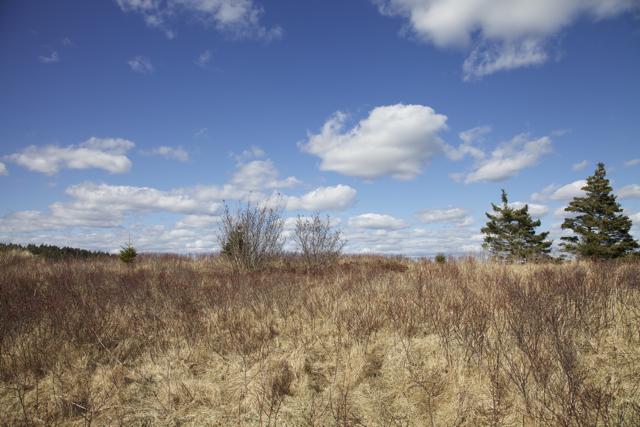 | |||
| Ice forms among the bulrushes (West Quoddy, NS) |
I sit by the fire with the cat. She has taken up her odalisque pose on the bench beside me, both of us craving the warmth, letting it radiate into our bones. A high of zero degrees today; when Marike and I stepped into the light for a walk, it felt as if the north wind was squeezing my face, pinching my cheeks, thumping my forehead. It took several minutes to get used to it, to stop feeling as if I ought to turn around and huddle indoors. Underfoot, the crackle and shatter of puddles become brittle ice--all of the water of the last days' soakings transformed into glittering patterns in the ditches.
We finally remembered to shut the windows in the bedroom and the bath--I had to climb on the garage roof and then the oil tank and push while Marike ground the windows inward and locked them down; they are secured now for the winter. We dumped three buckets of ashes over the wall, and hung out and then brought in an icy load of laundry. In the interim, we walked around the headland, down to the water, then back again.
Today the chickadees were puffed up and greedy for seeds--one bird, the smallest one, sat repeatedly in my palm and crammed as many sunflower seeds as it could into its beak, perhaps four or five, before flying away to cache them in the trees. We startled a grouse or two, and one or two rabbits, their fawn colouring giving way to snow now--just this week white patches have begun to spread across their noses and up the backs of their legs.
Once I was out in the sun, despite the cold, I didn't want to come in. It was high tide when we set out, the beach underwater, so we picked our way along mossy deer paths in the forest to get from one cove to the next. Once in the lee of the wind, we stopped to sit with the sun on our faces, eyes closed, listening to the suck and drift of the water, to the almost silent fanning of the weeds at our feet.
Just here, like this, I said to Marike, and you can imagine that life on earth is truly good.






























